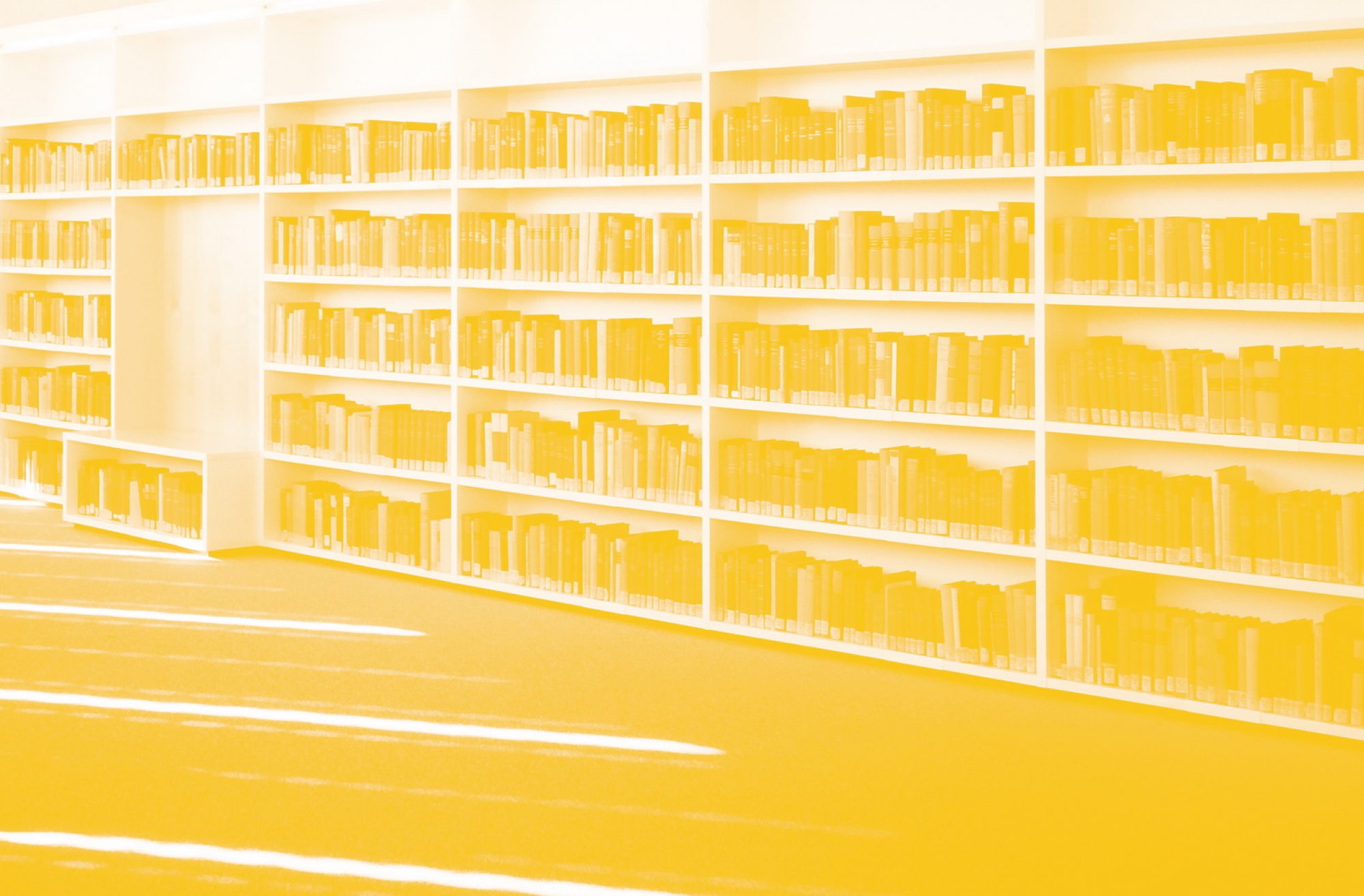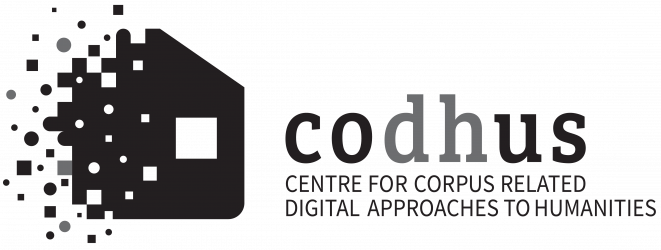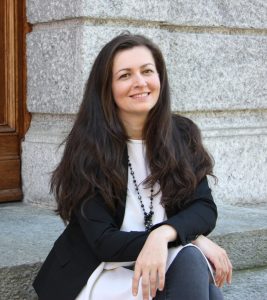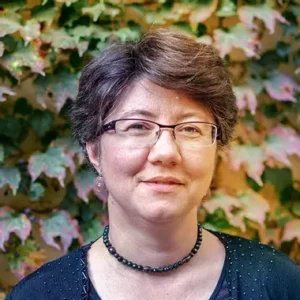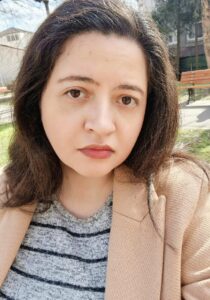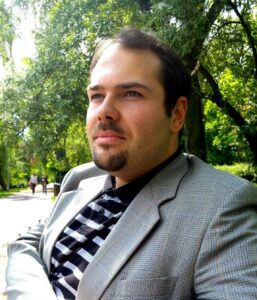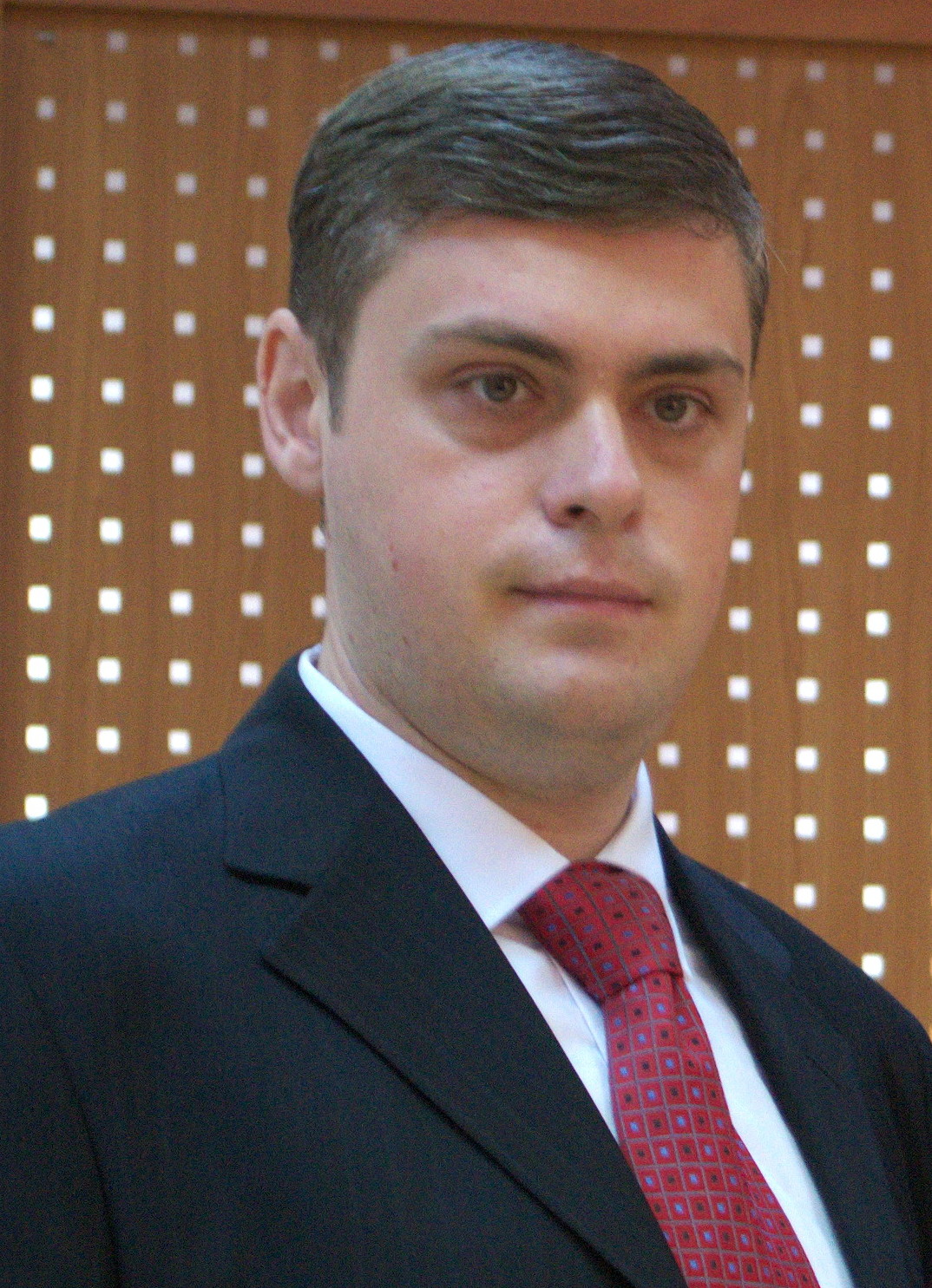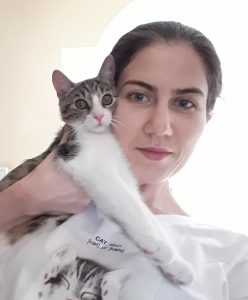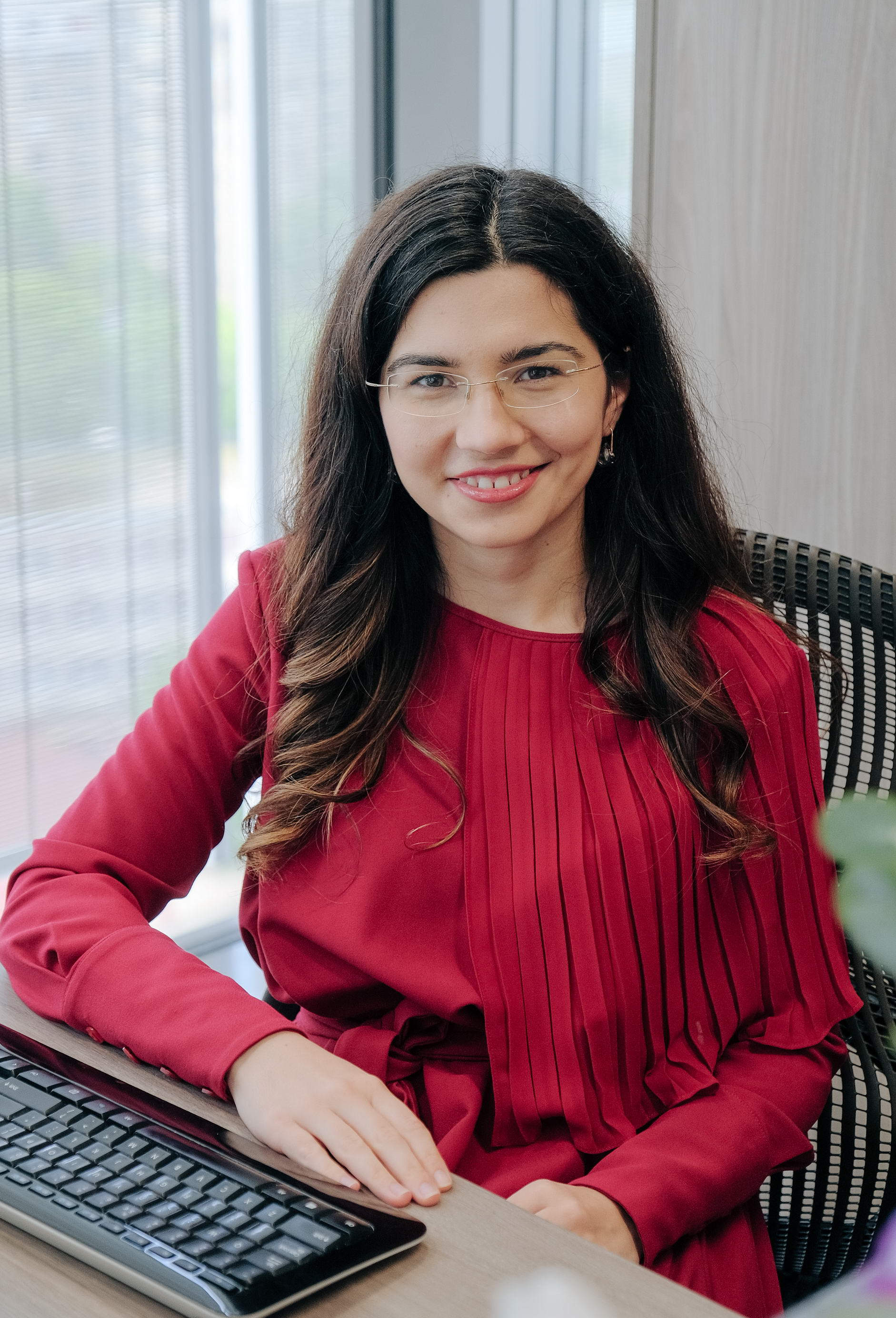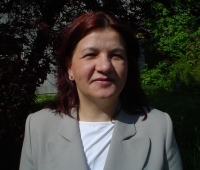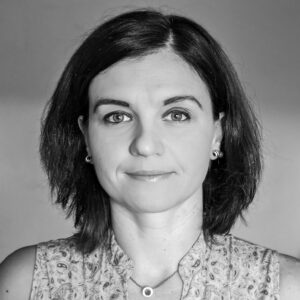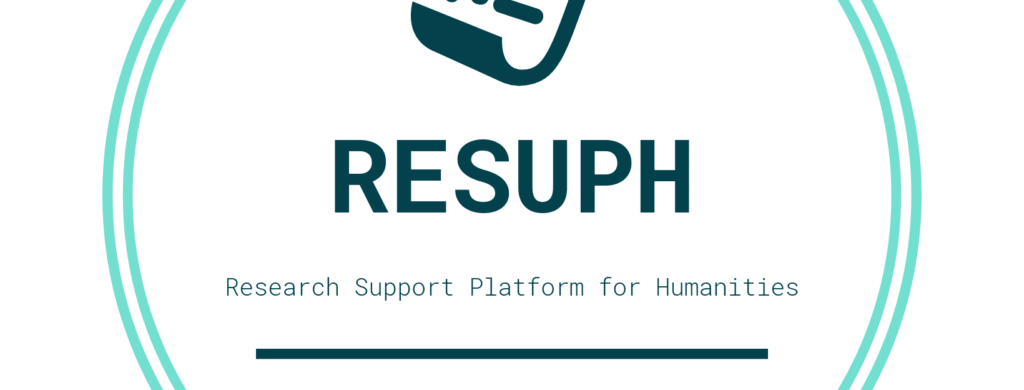
The RESUPH webpage (Research Support Platform for Humanities) is dedicated to researchers and university teachers from the Faculty of Letters, History and Theology (FLIT) at the West University of Timișoara, interested in the field of humanities. Through this initiative (a ROGER subproject), we aim to support the research community within our faculty in order to efficiently identify funding opportunities, research partners and institutional synergies for new projects.
From April 10th to 13th, 2023, West University of Timișoara hosts the conference "Smart diaspora - diaspora in higher education, science, innovation and entrepreneurship. Diaspora and its friends" together with other universities of the Timisoara University Alliance (ATU) and with UEFISCDI, in partnership with the Romanian Academy. The conference is organised under the High Patronage of the President of Romania and under the aegis of the Romanian Government, of the Ministry of Education and of the Ministry of Research, Innovation and Digitisation.
More about the conference presentation on the UEFISCDI page here.
The CODHUS team is involved in the organization of the workshop titled:
Innovation at the intersection of Natural Language Processing and Digital Humanities: applicability to Romanian language and literature studies
More about the workshop on the UEFISCDI page here.
The organizing committee of this workshop is composed of:
‣ Traian Rebedea, PhD, Assoc. Prof., Politehnica University of Bucharest
‣ Roxana Patraș, (CS I), PhD, Senior Researcher, "Alexandru Ioan Cuza" University of Iași
‣ Mădălina Chitez, PhD habil., Senior Research Fellow, West University of Timișoara
The extended list of organizers is:
Representative(s) of the scientific community in the country:
‣ Camelia Lemnaru, , PhD, Assoc. Prof., Technical University of Cluj-Napoca
‣ Traian Rebedea, PhD, Assoc. Prof., NVIDIA (Romania) & Politehnica University of Bucharest
‣ Roxana Patraș, PhD, Senior Researcher, "Alexandru Ioan Cuza" University of Iași
Representative(s) of diaspora scientific community:
‣ Viorica Pătrăucean, PhD, Google DeepMind, UK
‣ Răzvan Pașcanu, PhD, University College London & Google DeepMind, UK
‣ Ioana Galleron, PhD, Professor, Sorbonne Nouvelle, France
Representative of the Timișoara University Alliance (ATU)
‣ Mădălina Chitez, PhD habil., Senior Research Fellow, West University of Timișoara
What is the aim of this workshop?
Currently, the field of Natural Language Processing (NLP) represents one of the fields with the most advanced application of frontier technologies in Artificial Intelligence (see tools such as ChatGPT), as well as an essential sector that can bring societal improvements in terms of access, processing, storage and dissemination of vast information resources. However, these technologies have not been sufficiently tested and adapted to the specificity of the Romanian language and its expressiveness: to a large extent, the insufficient use of automatic processing of Romanian texts is the insufficiency of heritage corpora and the pioneering stage of the field of Digital Humanities (DH) in Romania.
The main objective of this workshop is to bring together world-class experts in NLP and DH, as well as the national community of young researchers, to disseminate possible solutions for NLP and DH applied to Romanian language and literature resources. It will also discuss the potential limitations of this approach to the development of intelligent models for natural language.
More about the workshop guests here:
- Victoria BOBICEV
Victoria Bobicev is Associate Professor at the Technical University of Moldova, researcher in the field of natural language processing and computational linguistics. She studied Romanian language statistics, worked on text classification, diacritic restoration, morphological and syntactic marking, lemmatization; creation of semantic lexical resources: associative dictionary, multilingual WordNet-Affect. Recently, she has participated in the creation and annotation of the Romanian non-standard corpus.
- Ana-Maria BUCUR
Ana-Maria Bucur is a PhD student at the Interdisciplinary School of Doctoral Studies, University of Bucharest. Her research interests include applications in natural language processing. Her research studies cover a variety of interdisciplinary topics, from approaches to the detection of mental illness and human well-being to corpus-based analyses of academic writing.
- Cornelia CARAGEA
Cornelia Caragea is Professor of Computer Science at the University of Illinois Chicago (UIC), where she leads the Information Retrieval research group. Prior to joining UIC, she was an Associate Professor at Kansas State University, where she held the Lloyd T. Smith Creativity in Engineering Endowed Chair and received the Munson-Simu Keystone Research Scholar Award. She holds a Ph.D. in Computer Science from Iowa State University and a B.S. in Computer Science and Mathematics from the University of Bucharest. Her research interests include natural language processing, deep learning, information retrieval, and artificial intelligence, with applications to text, image analysis, and social media. Cornelia Caragea's work has been recognised with several NSF research awards, including the prestigious NSF CAREER award. She has published numerous research papers in leading publications such as AAAI, IJCAI, WWW, EMNLP, ACL, and ACM Transactions on the Web and has received several best paper awards for her work with students. She has served on the organizing committee for many top conferences such as WWW, AAAI, ACL, NAACL and EMNLP. Caragea has also organized several workshops on academic Big Data related to IJCAI, AAAI, Big Data and ACL.
- Maria CHIOREAN
Maria Chiorean is a PhD student in Philology at the "Lucian Blaga" University in Sibiu and is part of the Romanian Novel Digital Museum (1845-1947) project team, contributing to the quantitative research applied to the Romanian novel. She has published numerous articles and reviews of specialized volumes in “Transilvania” and “Metacritic Journal for Comparative Studies and Theory’, and her research areas include World Literature, postcolonial literatures, decolonialism, comparative literature and literary theory. He translated Galin Tihanov's volume, World Literature. Cosmopolitanism. Exile, published by the "Lucian Blaga" University Press in Sibiu in 2021.
- Mădălina CHITEZ
Mădălina Chitez is Senior Researcher in applied corpus linguistics at the West University of Timișoara, Romania. After completing her PhD at the Albert-Ludwig University in Freiburg, Germany, and after working at several European universities (Oxford, Siena, Zurich), she received the prestigious PROMYS grant, from the Swiss National Science Foundation, to start the ROGER project in Romania. This has resulted in a bilingual corpus of academic writings in Romanian and English and a dedicated open-access platform. She is the founder and coordinator of the research center CODHUS (Centre for Corpus Related Digital Approaches to Humanities), which hosts multidisciplinary applied research at the intersection of Corpus Linguistics, Digital Humanities and Natural Language Processing.
- Georgeta CÎȘLARU
Georgeta Cîșlaru (PhD, HDR) is Professor of linguistics at the University Paris Nanterre and a junior member of the Institut Universitaire de France. She specialises in textual and discursive linguistics, with a particular interest in the analysis of the writing process at the interface between psycholinguistics and computer science.
- Adrian COSMA
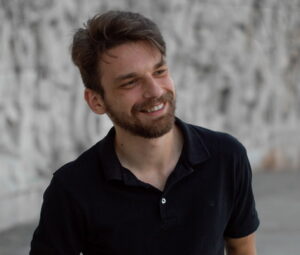
Adrian Cosma is a PhD student at the Politehnica University of Bucharest, currently doing a research internship at the Universitat Politècnica de València. His research interests include the analysis of human behaviour, both in physical space, using computer vision algorithms, and in social networks, using natural language processing. He has published papers at leading international conferences (NIPS, ECML-PKDD, ECIR, EMNLP) on a wide range of topics: human gait analysis, depression detection in social media, unsupervised learning.
- Horia CUCU
Horia Cucu is Associate Professor at the Politehnica University of Bucharest (UPB). In this position, he has authored more than 75 scientific papers in international conferences and journals, has been project director for seven research projects and has contributed as a researcher in ten other research grants. He holds two patents. He founded and runs Zevo Technology, a start-up company dedicated to integrating next-generation speech technologies into various commercial applications. His research interests include machine learning/deep learning and artificial intelligence, with a particular focus on automatic speech and speaker recognition, text-to-speech synthesis, and speech emotion recognition. Mr. Cucu received the Romanian Academy "Mihail Drăgănescu" Award in 2016 for outstanding contributions to research in spoken language technology, after developing the first large-vocabulary automatic speech recognition systems for Romanian.
- Mihai DASCĂLU
Mihai Dascălu is Professor at the Politehnica University of Bucharest, with a solid experience in the field of computer science applied to education. He has extensive experience in national and international research projects, with more than 200 published papers, including 30 papers at top conferences, more than 80 ISI-indexed papers at renowned international conferences and more than 10 papers in Q1 journals. Complementing his skills in NLP, technology-enhanced learning and discourse analysis, Mihai holds a wealth of professional certifications and extensive experience in strategic grant-funded projects. In addition, Mihai was awarded a Fulbright Senior Fellowship in 2015 and became a Fulbright Ambassador in 2018. Mihai is also a corresponding member of the Romanian Academy of Scientists.
- Liviu DINU
Liviu P. Dinu is Professor at the University of Bucharest, Faculty of Mathematics and Computer Science, Department of Computer Science, and director of the Human Language Technologies Research Centre (nlp.unibuc.ro). His main research interests are Computational Linguistics and Natural Language Processing, with a particular focus on language similarity, computational approaches to historical linguistics, paternity identification and computational stylometry, topic analysis and text categorisation, corpus analysis, etc. Solomon Marcus was his PhD supervisor (obtained in 2003), and in 2014 he defended his habilitation thesis entitled "Similarity and Decision Problems in Computational Linguistics". In 2007 he received the "Grigore C. Moisil" Prize, awarded by the Romanian Academy (for 2005), and in 2005 the "In Hoc Signo Vinces" Prize (Magna Cum Laude), for research and publications, awarded by the National Research Council for Higher Education. He has published 2 books, 5 book chapters and over 130 peer-reviewed scientific papers. He has initiated and managed a total of 12 national and international R&D projects and has been involved in 14 other R&D projects. He has also initiated a Master program in Natural Language Processing at the University of Bucharest, starting in 2020.
- Gianina DRUȚĂ
Gianina Druță is guest lecturer of drama and theater at the Faculty of Education and International Studies, Oslo Metropolitan University (OsloMet, Norway). She obtained her Ph.D. with a thesis on the early reception of Ibsen in the Romanian theater at the Center for Ibsenian Studies, University of Oslo, Norway. She has a B.A. degree in Norwegian language and Italian language and literature and a Master's degree in comparative literature ("History of images-History of ideas") from the Faculty of Letters, Babeș-Bolyai University of Cluj-Napoca, Romania. In 2015, she received a Norwegian mobility grant (SIU) to write her dissertation at the Ibsen Study Center and since then she has been responsible for the registration of Romanian Ibsen performances in the IbsenStage database. Her research focuses on Nordic literature, theater studies and digital humanities.
- Ștefan DUMITRESCU
Ștefan Dumitrescu works as a Machine Learning Engineer at Adobe, on NLP and Computer Vision issues, but he is active on the Open Source scene, especially on the NLP side in Romanian. In the last 3 years he has led or participated in volunteer teams that managed to create a set of foundational resources, such as the first monolingual BERT and T5 models, entity recognition, semantic similarity or emotion detection datasets, with a number of other datasets under development, such as summarization or meaning disambiguation. In 2022, he organised a hackathon on NLP for Romanian and carried out various other educational activities as a volunteer.
- Ioana GALLERON
Ioana Galleron is Professor of French literature and digital humanities at the Sorbonne Nouvelle (Paris). She specialises in the study of 17th and 18th century texts as well as theater studies. She has produced several digital scholarly editions, distributed with open access through Nakala, as well as printed scientific editions. Professor Galleron explores various textual structures and motifs using digital tools borrowed from computational linguistics, as well as natural language processing. She is also involved in the digitization and study of historical dictionaries, such as the Dictionnaire universel revised by Basnage de Beauval.
- Diana INKPEN
Diana Inkpen is Professor at the University of Ottawa in the School of Electrical Engineering and Computer Science. She received her PhD in Computer Science from the University of Toronto, Canada, and completed her Master's and Bachelor's degrees in Computer Science and Computer Engineering at the Technical University of Cluj-Napoca, Romania. Her research focuses on applications of Natural Language Processing and Text Mining. She is Editor-in-Chief of Computational Intelligence and Associate Editor of Natural Language Engineering. She has published a book on Natural Language Processing for Social Media (Morgan and Claypool Publishers, Synthesis Lectures on Human Language Technologies, 3rd edition published in 2020), 10 book chapters, over 35 journal articles, as well as over 130 conference papers.
- Camelia LEMNARU
Camelia Lemnaru is Associate Professor at the Technical University of Cluj-Napoca, Computer Dept. She received her PhD in 2012 in Computer Science from the Technical University of Cluj-Napoca. Her research work focuses on knowledge extraction from data, with an emphasis on natural language, and she has co-authored more than 60 scientific papers in this area.
- Verginica MITITELU
Verginica Mititelu has been a linguist at the Research Institute for Artificial Intelligence of the Romanian Academy for 20 years. She has extensive experience in the creation of linguistic resources, designed to describe the Romanian language, but especially for the training and testing language processing tools. She participated in the creation of the lexical-semantic network for Romanian (Romanian wordnet), in the creation of a morphological dictionary for Romanian, of a valency framework dictionary, coordinated the creation of several syntactic treebanks for Romanian (Romanian reference treebank, a medical treebank and one for the Aromanian dialect), coordinated the creation of a Romanian corpus annotated with verbal expressions and phrases. She was a member of the collective that created the representative corpus of contemporary Romanian - CoRoLa. At present, she is an active member of several professional networks (Nexus Linguarum, PARSEME, Universal Dependencies, UniDive), where she coordinates Romanian teams for the standardization of existing resources, for their quality improvement and for the development of new ones.
- David MORARIU
David Morariu is a PhD student at the "Lucian Blaga" University in Sibiu and an assistant professor at the Romance Studies Department of the Faculty of Letters and Arts. He was part of the project team of the Digital Museum of the Romanian Novel (1845-1947) and contributed to the first survey studies of the digital archives of the Romanian novel. His research interests include corpus linguistics and computational linguistics, and in his doctoral research project he proposes a linguistic perspective on foreignness in the Romanian novel published between 1845 and 1947, using quantitative methods and digital text analysis tools.
- Alexandra OLTEANU
Alexandra Olteanu is a PhD student at "Alexandru Ioan Cuza" University and is writing a thesis on the emergence and evolution of the Romanian historical novel. She is also a PhD student assistant at "Petre Andrei" University, associate teaching staff at "Grigore T. Popa" University of Medicine and Pharmacy in Iași and a member of the Digital Humanities Laboratory research team. She is part of the research team of the Pop-Lite project. Her main academic interests are cultural studies, digital literary studies, history and literary theory. She has written and published articles on the Romanian historical novel, on the tradition of melodramatic prose, on the novels about outlaws and robbers, as subgenres of the historical novel. She collaborated in the creation of the ELTeC collection within the Distant Reading for European Literary History project.
- Alexandru ORAVIȚAN
Alexandru Oravițan is Research Assistant at the Department of Modern Languages and Literatures of the Faculty of Letters, History and Theology at UVT, where he teaches seminars on contemporary English, American literature and practical courses on English and translation skills. His research interests cover American studies (within the UVT Center for American Studies) and the use of digital methods and corpus linguistics in the teaching and learning of English (within the CODHUS - Center for Corpus Related Digital Approaches to Humanities UVT).
- Lucreția PASCARIU
Lucreția Pascariu is a Ph.D. student at the "Alexandru Ioan Cuza" University in Iași, with a thesis on the serial novel in 19th century Romanian literature. She is part of the Digital Humanities Laboratory team (UAIC), an collaborates in several projects (Pop-Lite, Hai-Ro, ELTeC-ROM, Women Writers in History: CEEPUS). Her main areas of interest are cultural studies and digital literary studies. She has published articles on the structural function of the serial novel within the Romanian literary tradition and is one of the main contributors to the Romanian collection of the ELTeC corpus (European Literary Text Collection).
- Răzvan PAȘCANU
Răzvan Pașcanu is a research scientist at Google DeepMind, one of the organisers of the Eastern European Machine Learning (EEML) Summer School, and part of the AIRomania team. He received his Ph.D. from the University of Montreal in 2009, where he worked with Yoshua Bengio on optimization problems, recursive models and deep learning in general. His research interests include topics such as optimization, neural networks, deep reinforcement learning, continuous learning and structured neural network models.
- Roxana PATRAȘ
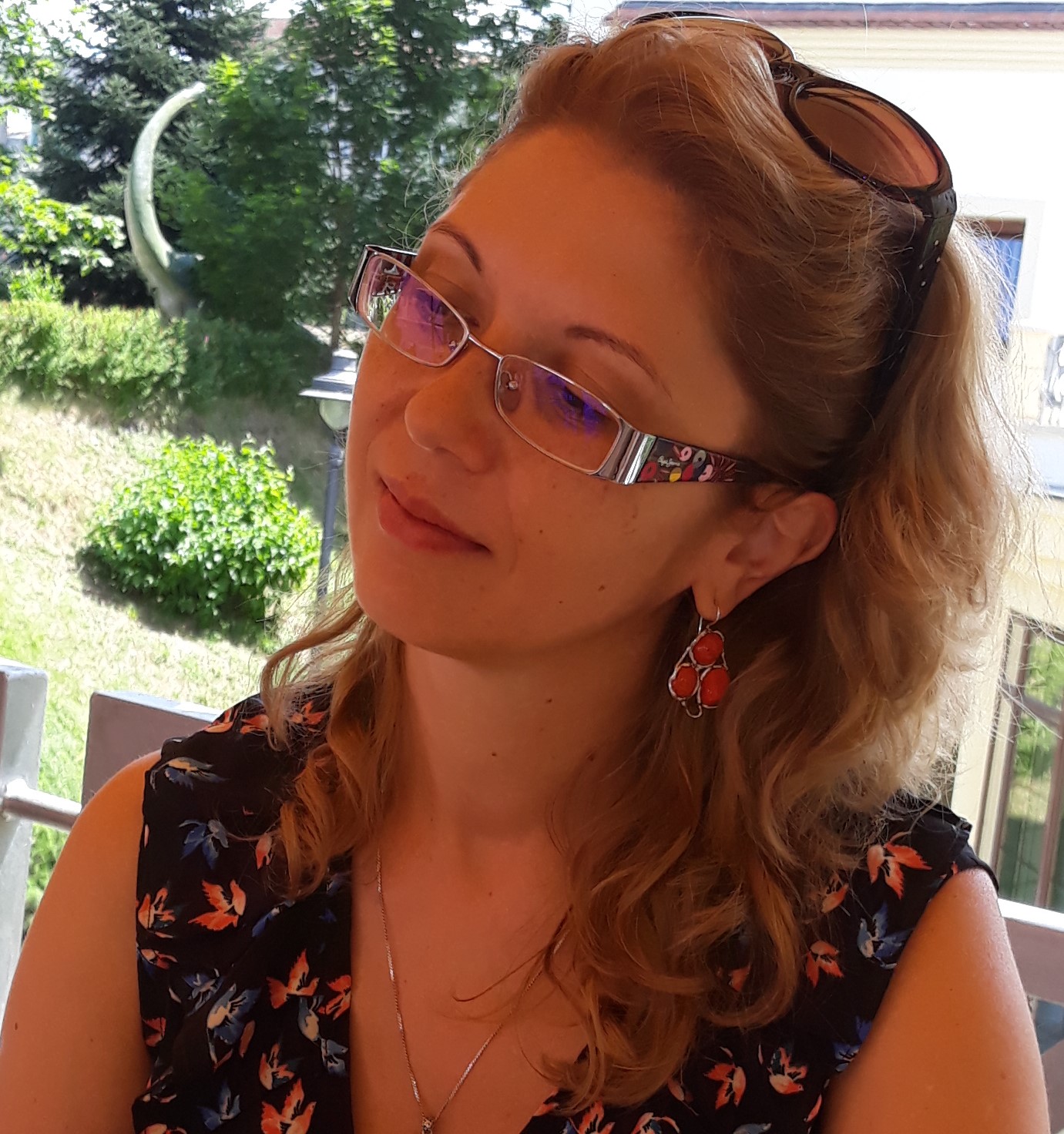
Roxana Patraș is Senior Researcher (I) in the Department of Social Sciences and Humanities, Institute of Interdisciplinary Research, “Alexandru Ioan Cuza” University of Iași. PhD in Philology since 2012, director and member of several research projects funded by national and international grants. Her current research interests focus on modern Romanian and European literature (19th century), digital literary studies, literary theory and the development of tools (critical editions, dictionaries, anthologies, digital literary corpora, etc.). Roxana Patraș has published three monographs, critical editions, anthologies, collective volumes and numerous articles and studies in prestigious publications in Romania and abroad. Areas of expertise: Modern Romanian Literature, Computational Literary Studies, Digital humanities, Literary Theory. Scientific profile:ORCID; Google Scholar; Brainmap: U-1800-046B-6970. Contact: roxana.patras@uaic.ro
- Vasile PĂIȘ
Vasile Păiș is a scientific researcher at the Institute for Artificial Intelligence of the Romanian Academy. The work carried out in national and international projects has led to the production of several resources used in the training of artificial intelligence algorithms, as well as papers published in journals, international conferences, and book chapters. He set up the RELATE platform. His interests include: algorithms based on deep neural networks, information extraction from texts, and platforms for automatic natural language processing.
- Viorica PĂTRĂUCEAN
Viorica Patraucean is a researcher at Google DeepMind London. She received her Ph.D. in Computer Science and Applied Mathematics from the University of Toulouse on statistical models for image processing, and did postdoctoral studies at the Polytechnic University of Paris and Cambridge University on machine learning for image, video and 3D shape modelling. She is currently working on multimodal models and their evaluation, efficient video processing and alternatives to backpropagation, publishing papers and patents and organizing workshops at leading conferences on these topics. She is one of the founders of the annual Eastern European Machine Learning Summer School and the AIRomania community.
- Andrei-Cristian RAD
Andrei Cristian-Rad leads an artificial intelligence research and development team at Connatix, a leading video advertising company. In parallel, he is studying for a PhD in the field, with "continuous machine learning" and "fairness and bias in language models" as his main research interests. In the past, he completed a double Master's degree programme in Artificial Intelligence; he has published papers at international conferences and in peer-reviewed journals.
- Traian REBEDEA
Traian Rebedea is Associate Professor at the Politehnica University of Bucharest and a Senior Researcher at NVIDIA. After completing his Ph.D. at the Politehnica University of Bucharest, with a thesis focused on discourse analysis for multiparty dialogues in Computer Supported Collaborative Learning (CSCL), Traian continued his work as a professor and researcher, focusing on applied research projects in opinion mining, social network analysis, information retrieval and conversational agents. In addition to his academic research work at the Faculty of Computer Science and Automatics, UPB, he was Chief Data Scientist and co-founder at RoboSelf, where he developed Colang – a language for modelling conversational flows, and currently continues his work at NVIDIA as Principal Scientist in the Dialogue Systems team.
- Roxana ROGOBETE
Roxana Rogobete is a university assistant at the Department of Romanian Studies of the Faculty of Letters, History and Theology at UVT, where she teaches literary theory, research ethics, Romanian literature and introductory courses in literary studies. Her research interests include digital humanities (within CODHUS - Center for Corpus Related Digital Approaches to Humanities), new methods in literary studies, discourse analysis and intercultural literature.
- Lorena ROȘIA
Lorena Roșia is a lawyer with over 10 years of experience in areas at the intersection of law and technology. Lorena has assisted both international companies in ensuring the legal compliance of applications developed in-house and launched in several markets, as well as fintech start-ups in defining applications and their implementation in compliance with national and European legal frameworks. Lorena also assists in-house legal teams in the implementation of technology for legal aid processes and has a deep understanding of how different types of technology work and their legal implications. Lorena contributed legal expertise to the LiRo project, which promotes the development of AI solutions for the Romanian language.
- Mihaela SECRIERU
Mihaela Secrieru is Professor, with a Ph.D. in Philology (1998) and a Ph.D. in educational sciences (2009) from the Faculty of Letters of the "Alexandru Ioan Cuza" University of Iași. The areas of her competence are Contemporary Romanian Language – Syntax; History of Syntactic Theories. Semiotics and Communication. Didactics of the Romanian language. Among the volumes published (some intensively republished) and cited in specialized pre-university and university bibliographies, as well as in national and international treatises and works, we note: The syntactic level of the Romanian language (Iași 2007. trans. El nivel sintáctico del rumano, Salonic 2016. The Syntactic Level of The Romanian Language Iași 2019), Elements of comparative synchronic syntax (Iași 2000), The accumulation of syntactic functions in the Romanian language ("the additional predicative element") (Iași 2001. trans. Le cumul de fonctions syntaxiques dans la langue roumaine («l'élément prédicatif supplémentaire») Salonic 2015), Didactics of the Romanian language (Iași 2008), Didactics of the Romanian language in the European context of the beginning of the 21st century (Iași 2009), Didactic reference bibliography of the Romanian language and literature: (1757-2010) - 3 vols. (Iași 2011), The White Book of Romanian Linguistics from the ex-space of Romania (Ploiesti 2015), The Basics of Syntax. The bibliographic corpus of Romanian theoretical and applied syntax studies (1619-2014) (Thessalonica 2017), Novum glossarium sintacticum. Companion of syntactic terms (by definitions and theories) (Iasi 2019).
- Adriana STAN
Adriana Stan, Associate Professor at the Technical University of Cluj-Napoca, has over 10 years of experience in the field of speech signal processing, with a focus on text-to-speech synthesis for Romanian and the development of text and audio resources for synthesis systems. AS is the author of more than 30 scientific papers presented in international journals and conferences.
- Mihai SURDEANU
Mihai Surdeanu received his Ph.D. in Computer Science from Southern Methodist University, Dallas, Texas, in 2001. He has over 15 years of experience in natural language processing (NLP) and machine learning based systems. His experience includes both academia (Stanford University, University of Arizona) and industry (Yahoo! Research and two NLP-focused startups). Over the course of his career, he has published over 80 scientific papers, two of which rank among the top three most cited papers at various NLP conferences. He has been a leader or member of teams that have placed in the top three in seven highly competitive international evaluations of end-user NLP systems, such as question answering and information retrieval. His work has been funded by several government (DARPA, NIH), and private foundations (Allen Institute for Artificial Intelligence, Bill & Melinda Gates Foundation). Prof. Surdeanu's current research focuses on using machine reading to extract structure from free text and using this structure to build causal models that can be used to understand, explain and predict hypotheses for precision medicine.
- Emil ȘTEȚCO
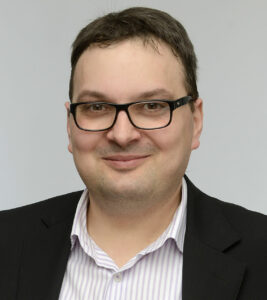
Emil Ștețco, co-founder and CEO of the Romanian company Zetta Cloud, has over 25 years of experience in executive, operational and technical management in the software industry. Zetta Cloud is a company specialized in Artificial Intelligence solutions based on machine learning and neural networks. Mr. Ștețco is the inventor of IntelliDockers (Natural Language Processing Engines), Factory No-Code AI (No-Code AI Platform) and TrustServista (Online News Analysis and Verification Platform) and has rich experience in developing natural language processing algorithms used in production. He returned to Romania in 2007 after 9 years spent in Germany, where he held various positions in international companies in the field of IT, telecommunications and media.
- Chris TĂNĂSESCU
Chris Tănăsescu or MARGENTO is a poet, researcher, and performer. He has published books, held conferences or performed poetry in Europe, North America, Asia, and Australia. His alias is the name of the intermedia cross-artform band he founded in 2001 and won numerous national and international awards with, including the 2008 Gold Disc in Romania and being selected for the CROWD Omnibus Tour in 2016. MARGENTO also represents an international coalition of writers, artists and computer scientists working on the #GraphPoem project listed as the institute performance at the Digital Humanities Summer Institute.Chris Tanasescu is the Altissia Chair in Digital Humanities at the UC Louvain in Belgium, an adjunct professor at University of Ottawa's Faculty of Arts and Faculty of Engineering, and recently a member of GlobaLS network. He served as a Coordinator of Digital Humanities at University of Ottawa and is an adjunct professor in the Faculty of Arts. He is a poet, translator, and Asymptote Journal’s Editor-at-Large for Romania and Moldova. His research and creative work—under the alias Margento—combine his interest in graph theory, natural language processing, literature, and performance.
- Dumitru TUCAN
Dumitru Tucan is a Professor at the Faculty of Letters, History and Theology of the West University of Timisoara. He currently teaches courses on Literary Theory, Romanian Literature and the Practice of Narrative Analysis. His research interests are in the fields of literary and critical theory, cultural studies, Romanian and comparative literature, Gulag studies and academic writing studies in Romanian. He is the author of Eugène Ionesco. Theatre, Metatheatre, Authenticity (2006), Introduction to Literary Studies (2007), and History, Memory, Testimony (in French - Histoire, mémoire, témoignage. Essais sur le goulag est-européen, 2014). He is also director of the Department of Romanian Studies.
